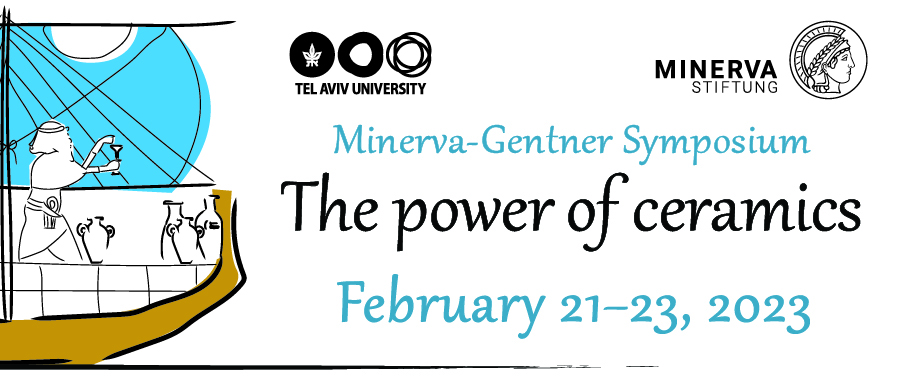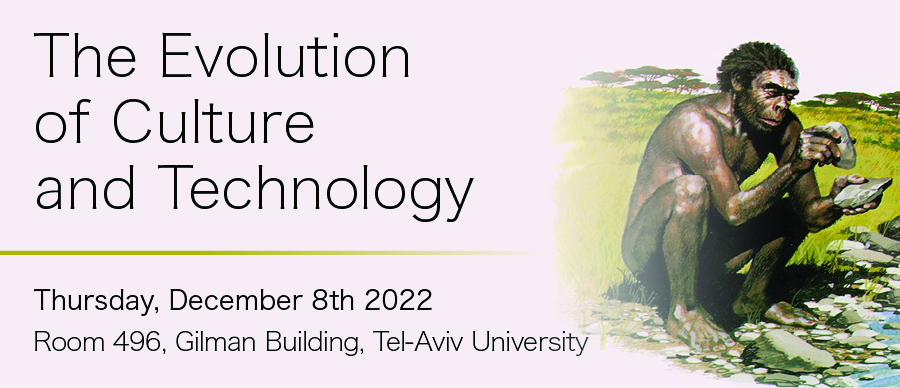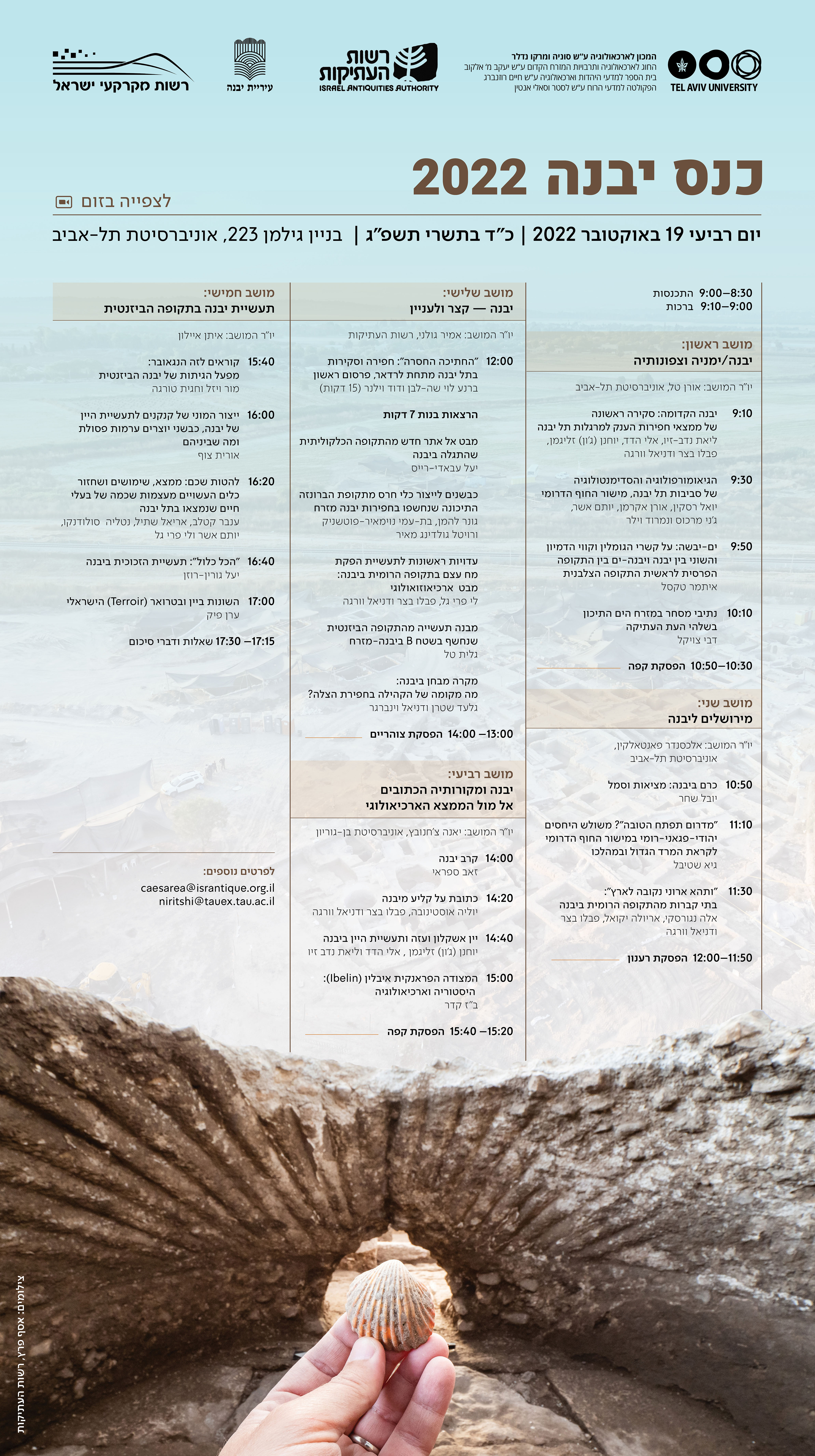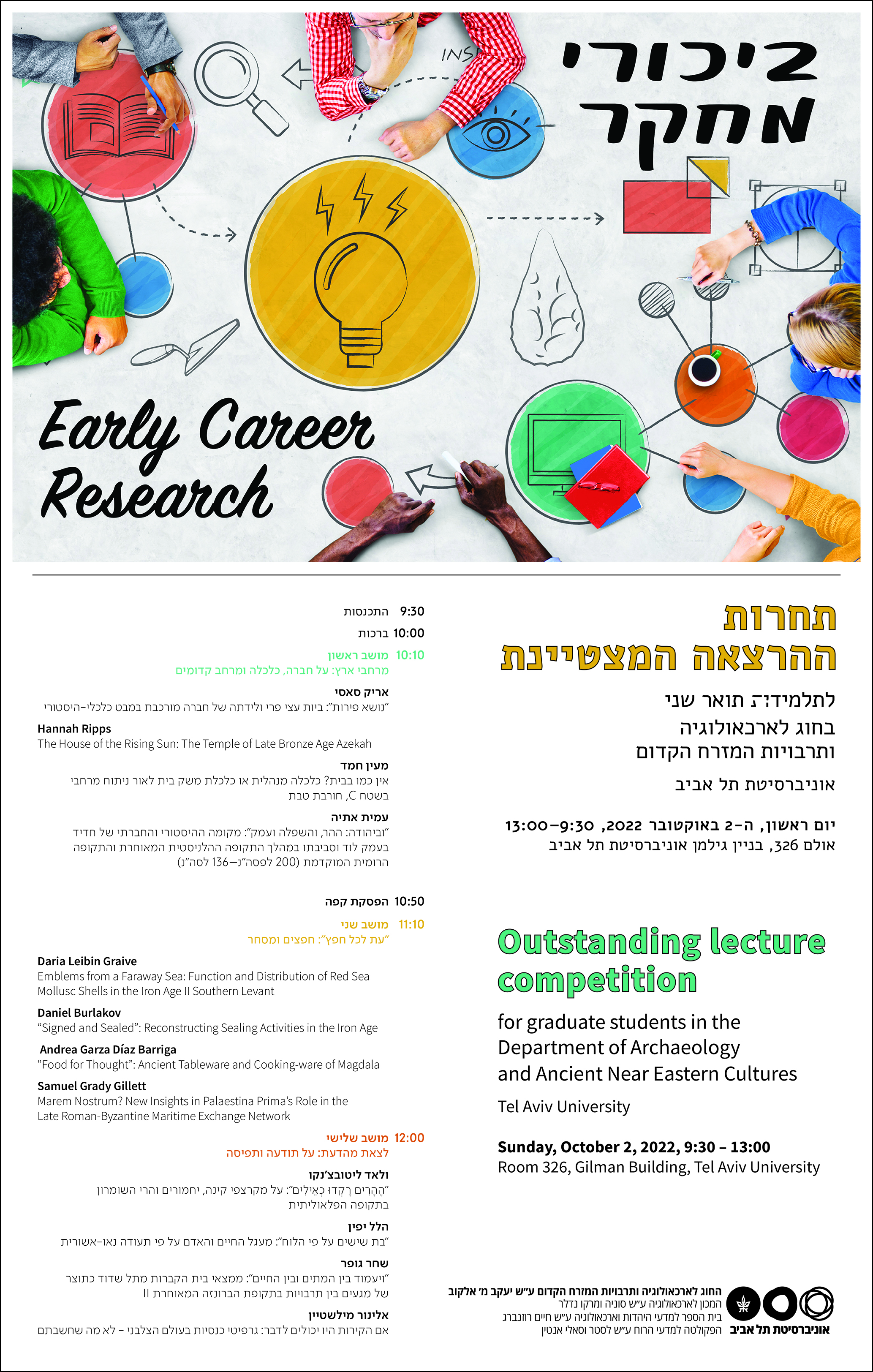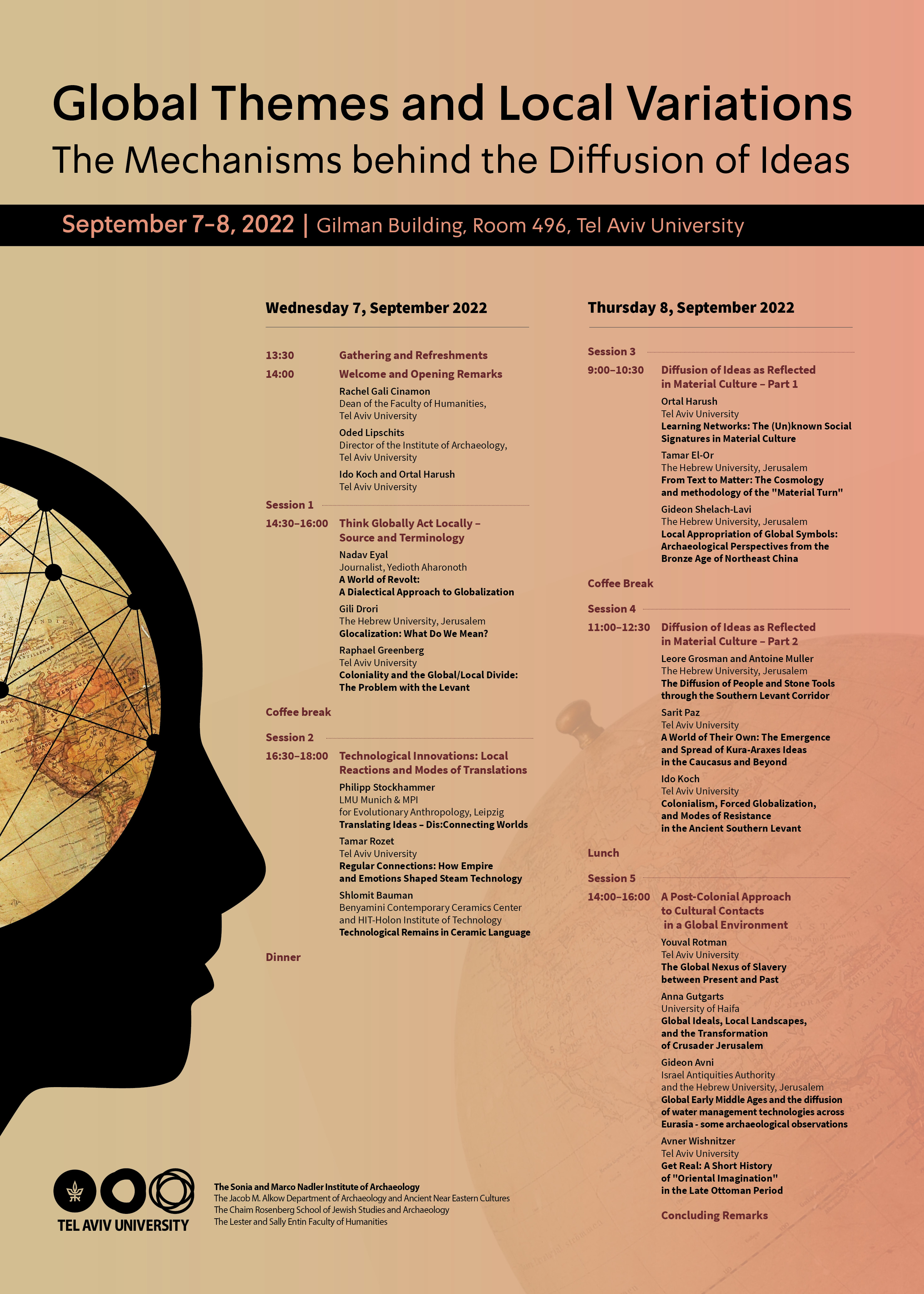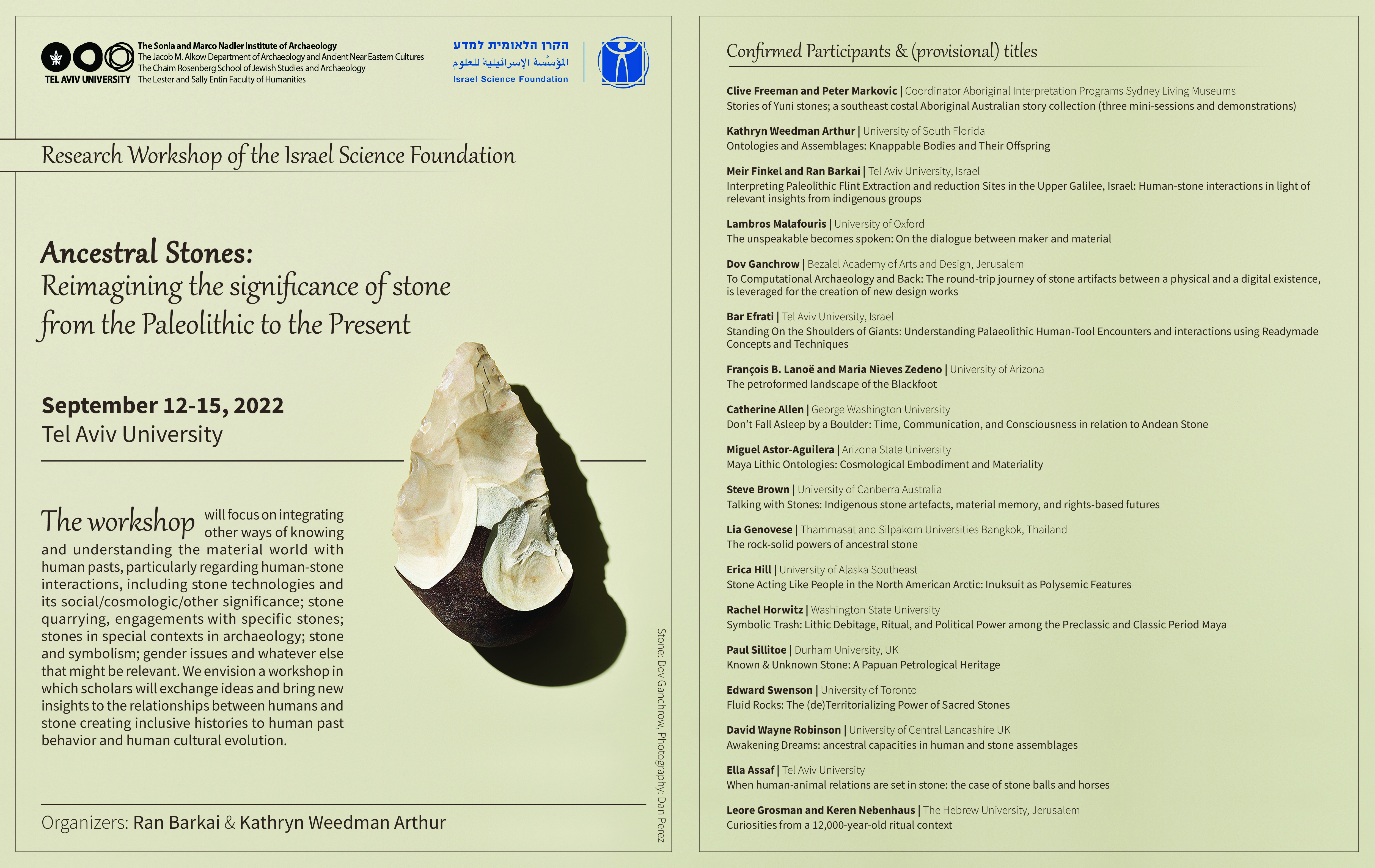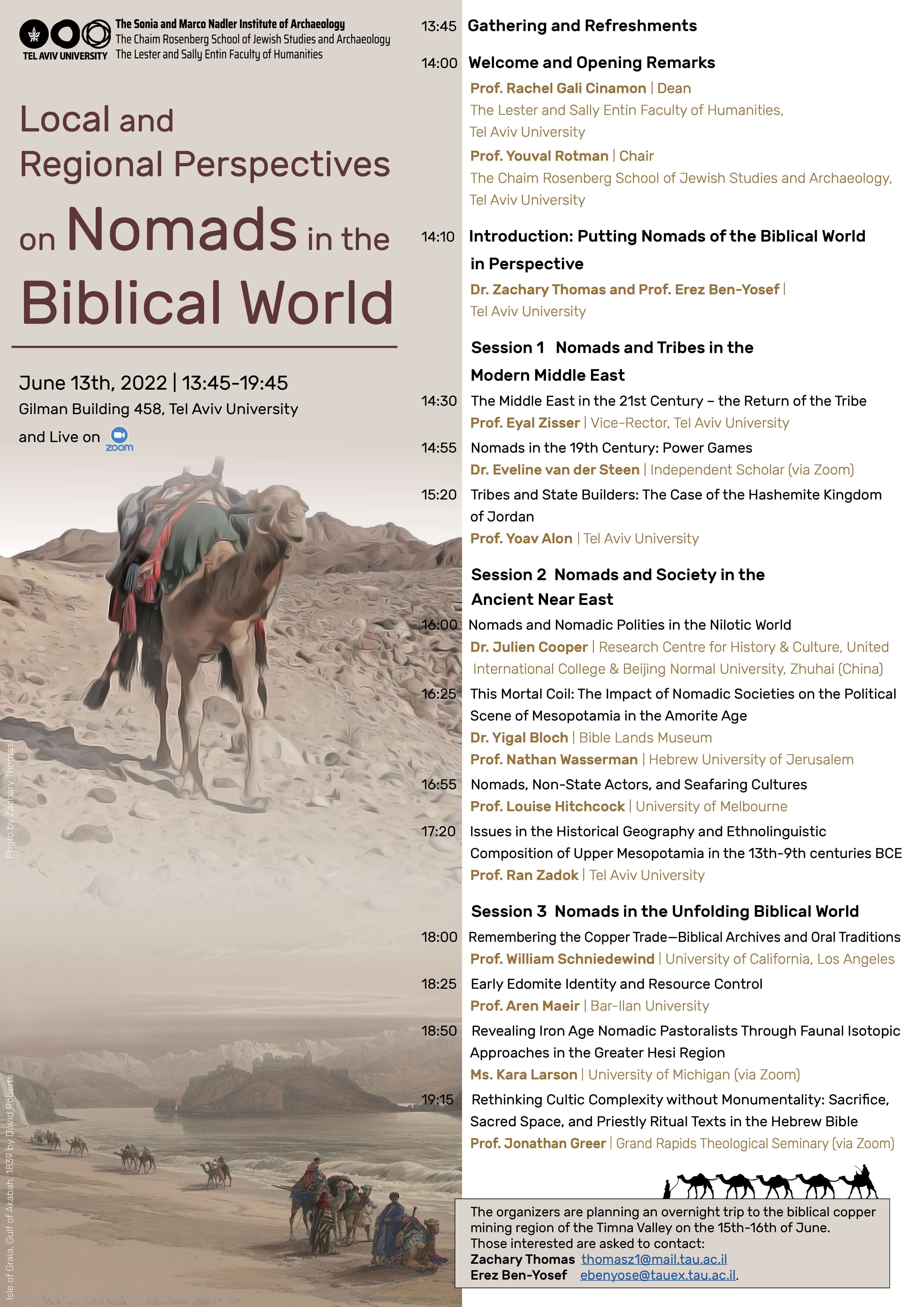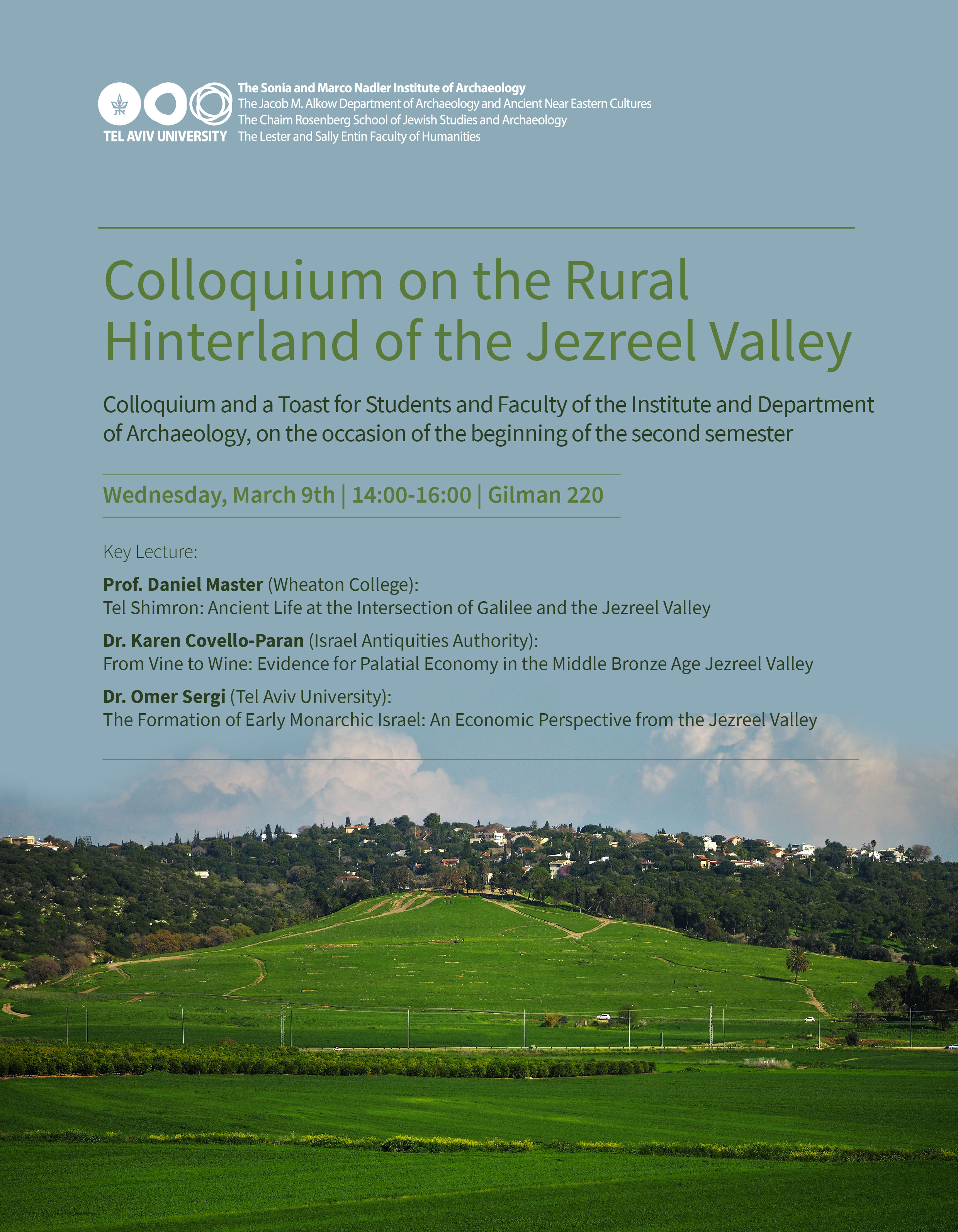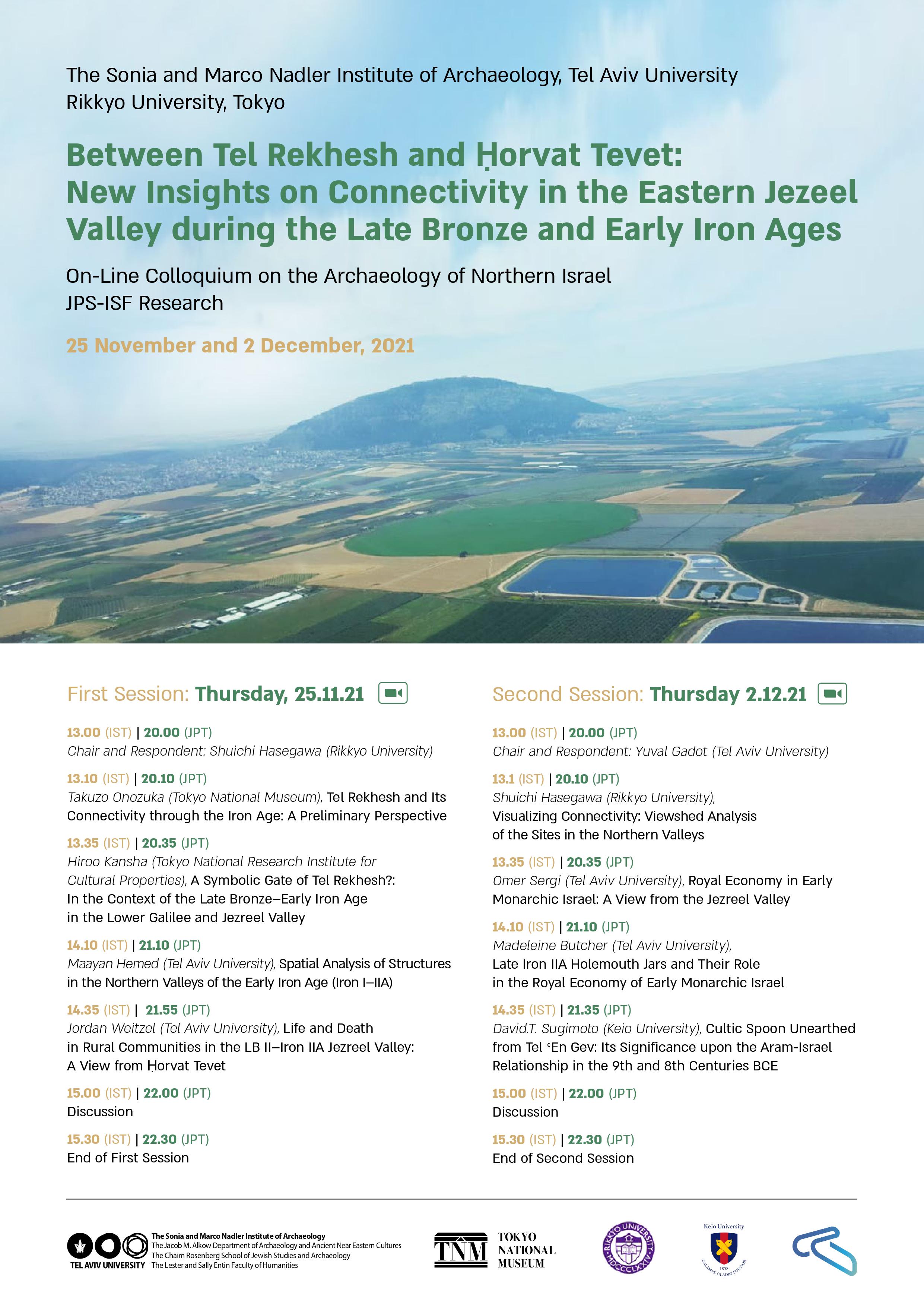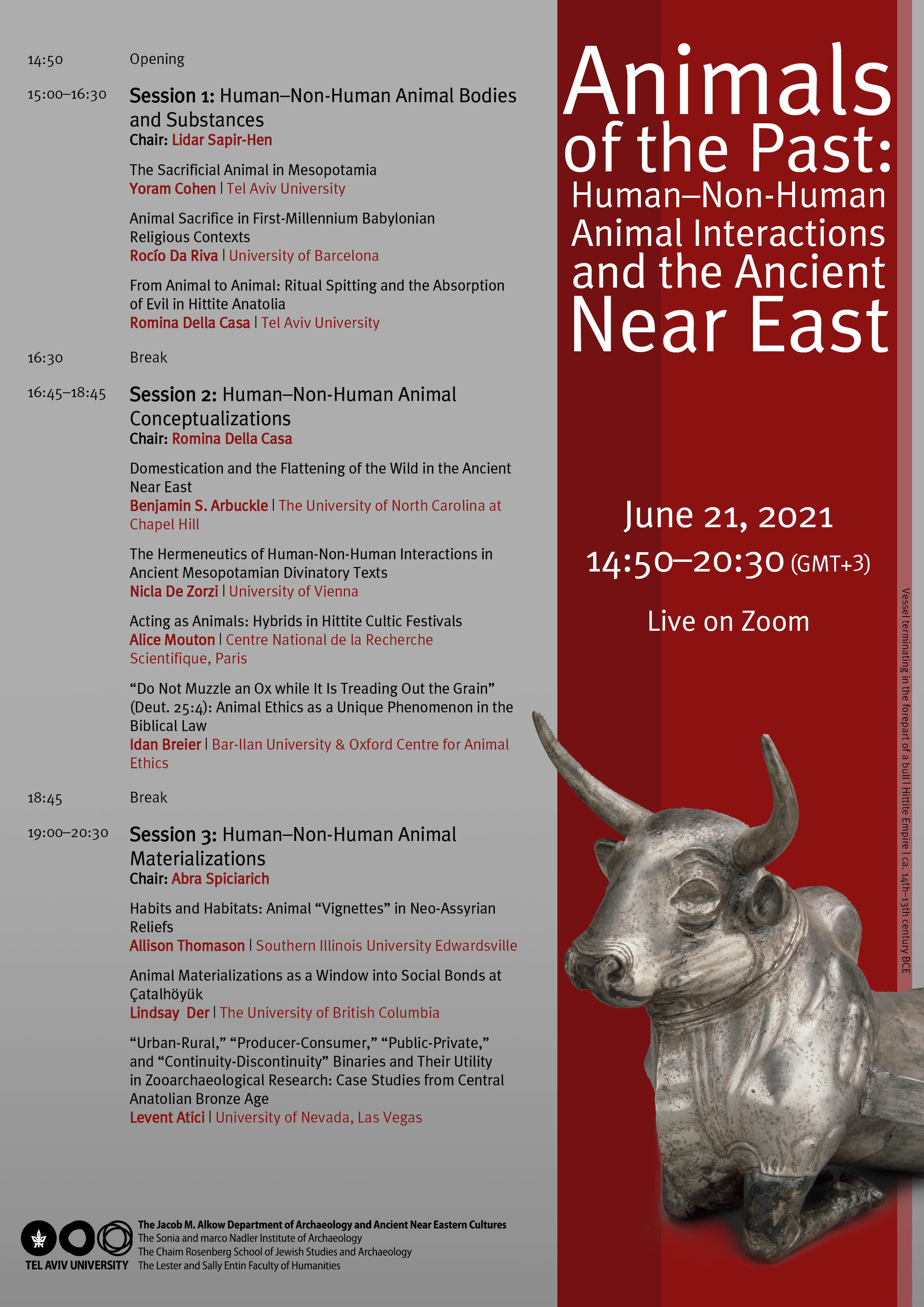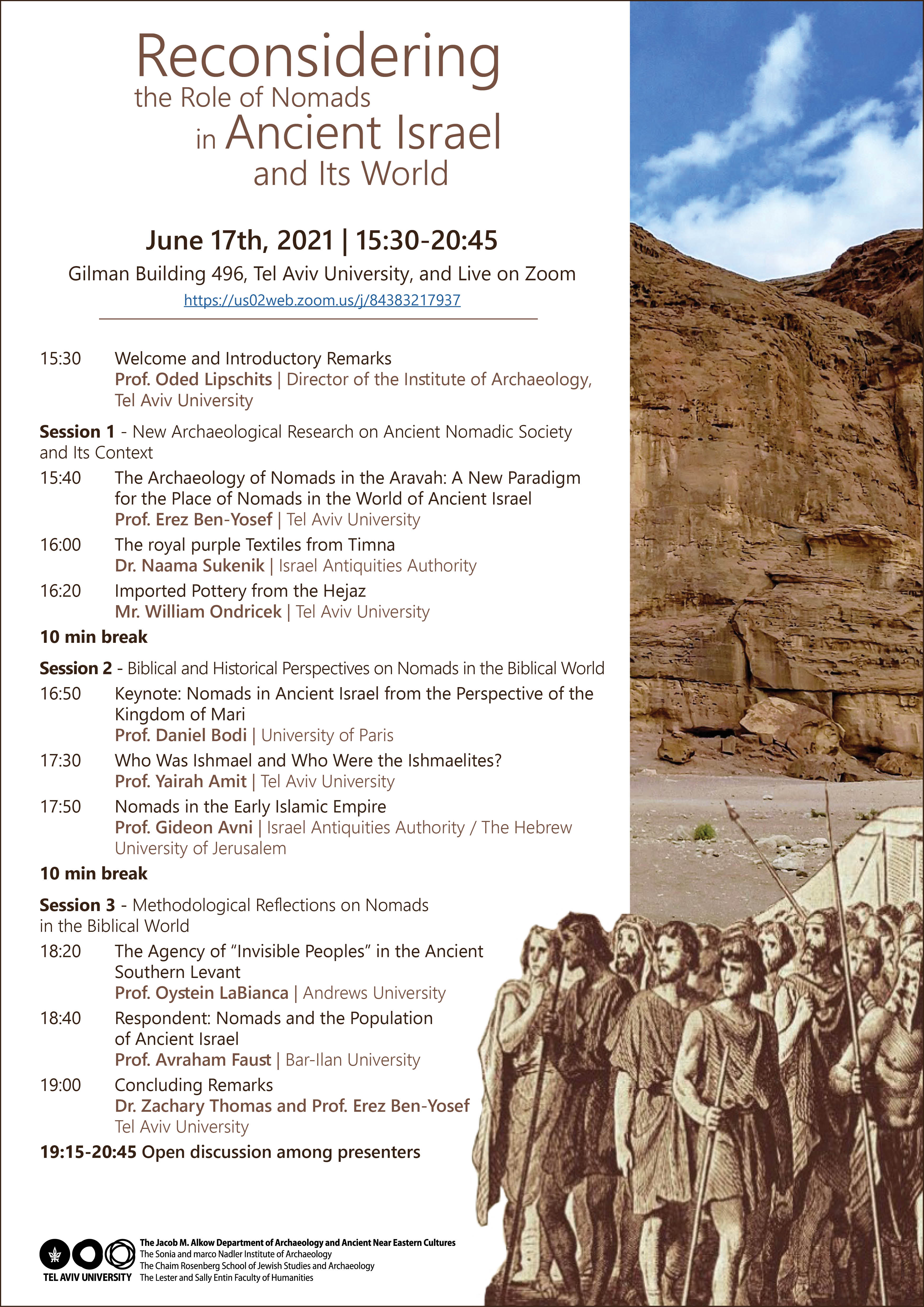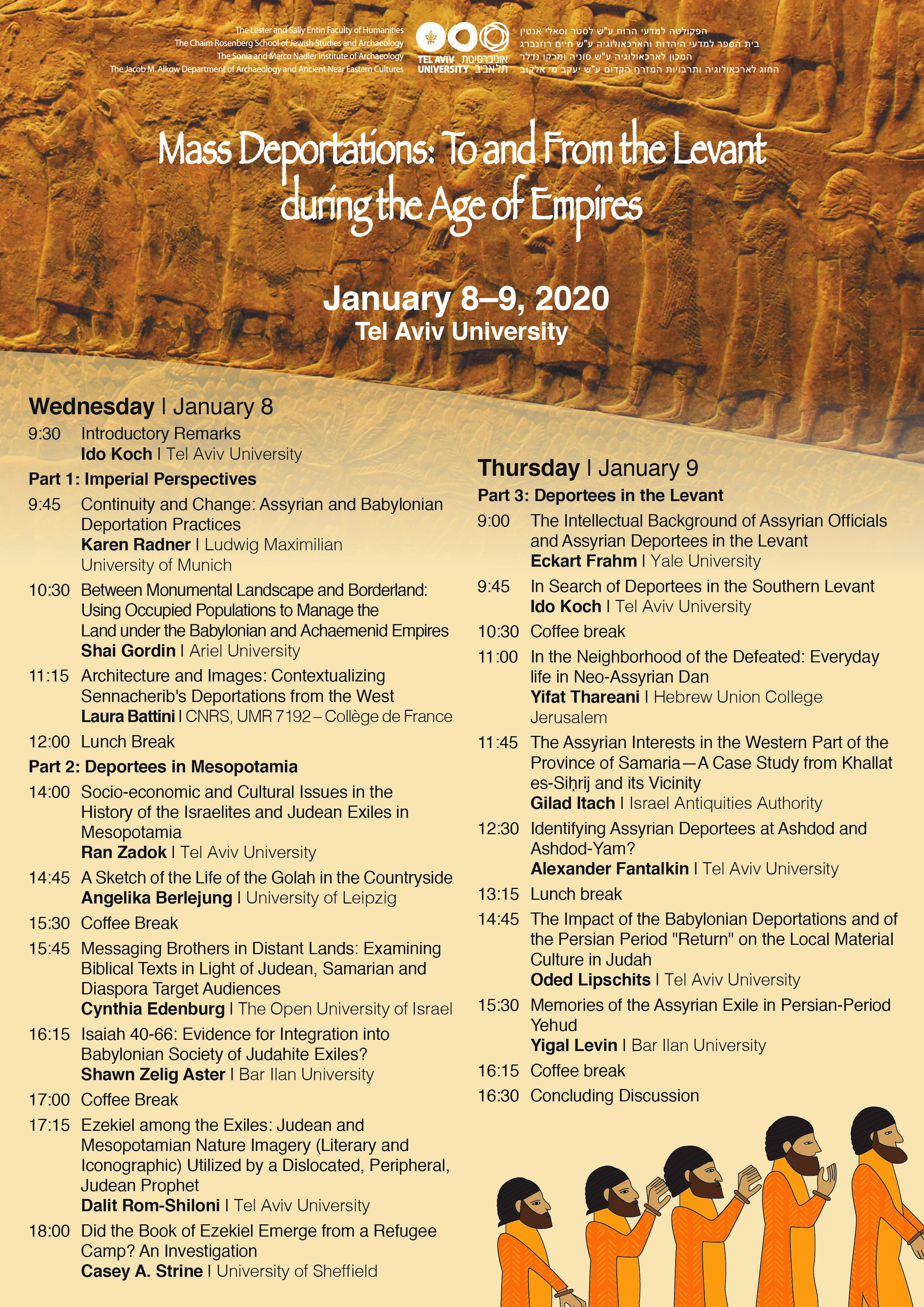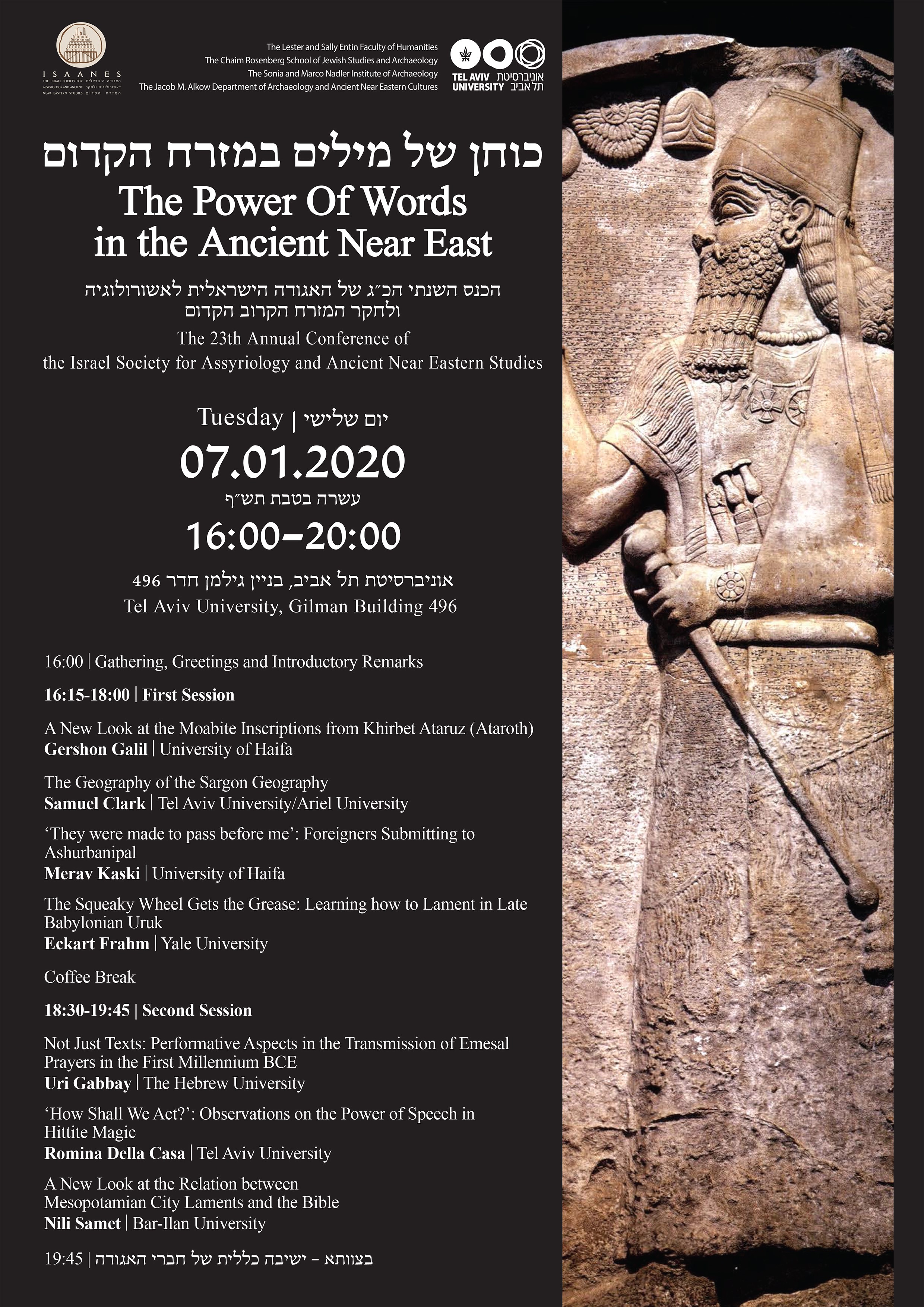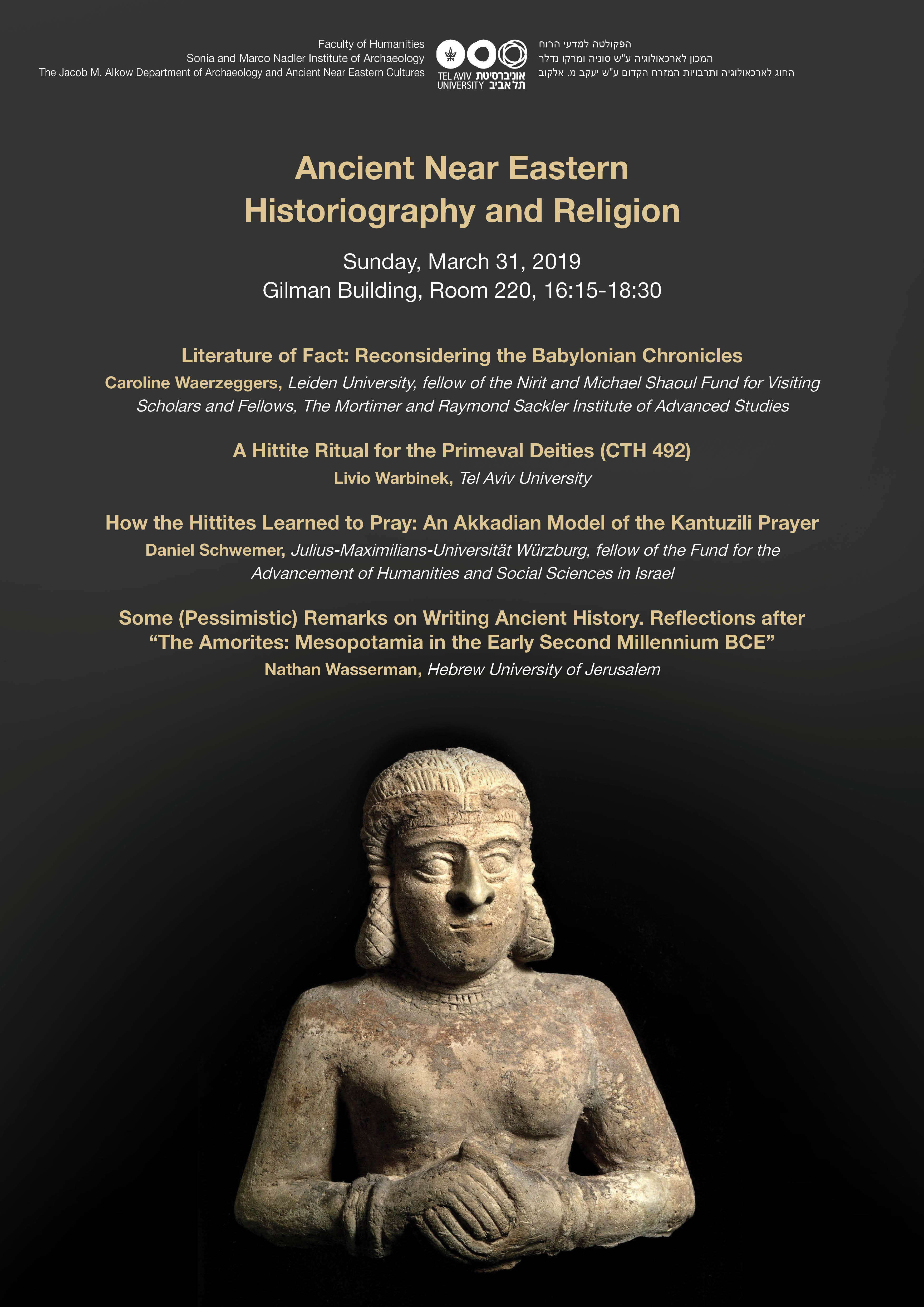Occasional Conferences
2023
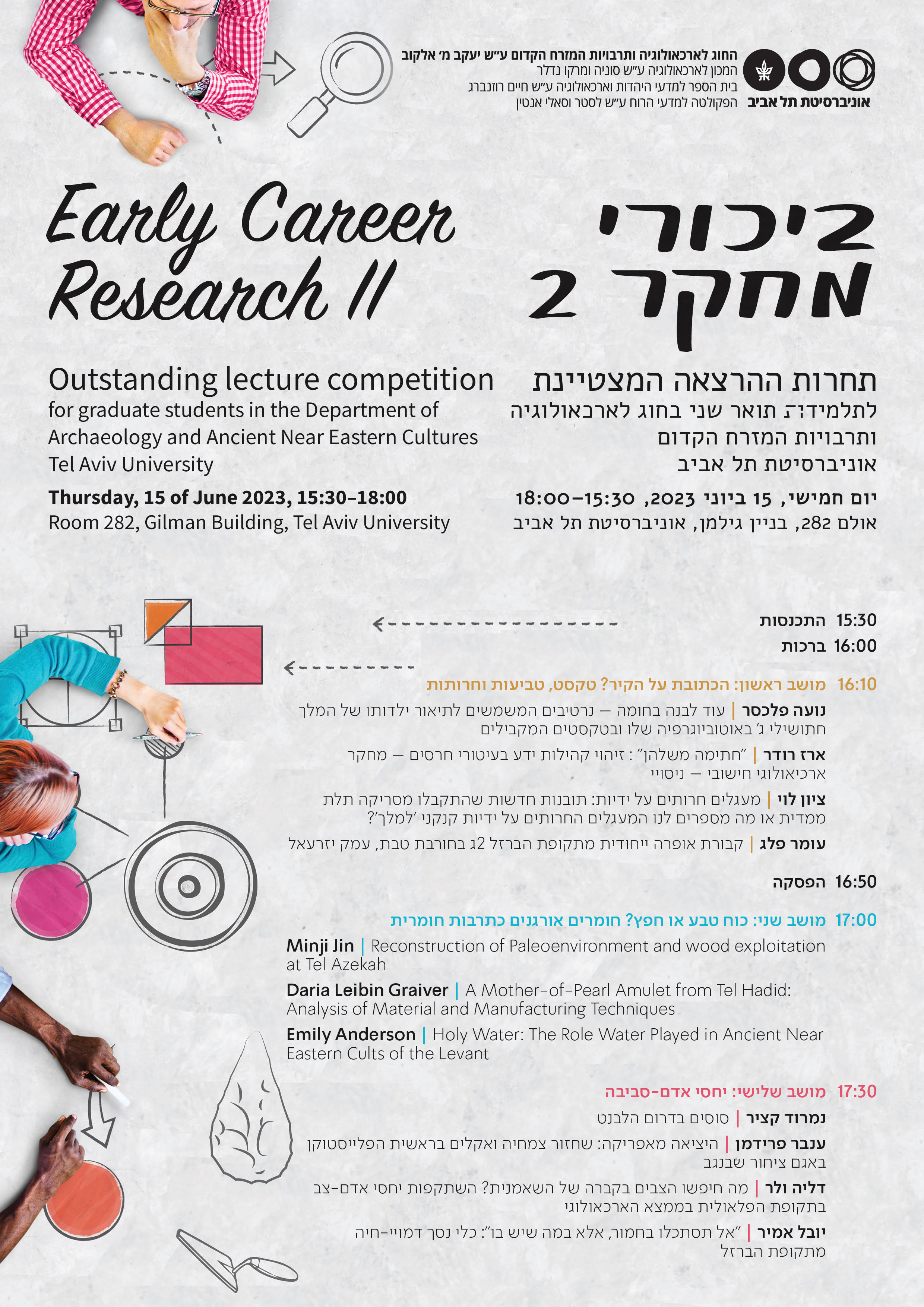
Early Career Research II
June 15th, 2023
Our research students will Participate in an outstanding lecture competition. the four winning lectures will be presented on the upcoming "News from the Trench" - our main yearly event. Also, the winning researchers will get Substantial scholarships.
The Power of Ceramics
February 21st-23rd, 2023
2022
The Evolution of Culture and Technology
December 8th ,2022
Yavne Conference
October 19th, 2022
Early Career Research
October 2nd, 2022
Our research students will Participate in an outstanding lecture competition. the four winning lectures will be presented on Aharoni Day - our main yearly event. Also, the winning researchers will get Substantial scholarships.
Global Themes and Local Variations – The Mechanism behind the Diffusion of Ideas
September 7th-8th, 2022
A multidisciplinary conference that will discuss globalization, its expressions and influences – in Text. Material culture and mind. The conference will deal in the transition of ideas and innovations between different groups and their reflection in human behavior. The conference, which will host world leading scholars in a variety of fields – history, archaeology, sociology, and more – will focus on the tensions and the frictions between the center to the periphery, acceptance or rejection of global ideas into the local context and the relationships between influencers and influences.
Ancestral Stones: Reimagining the Significance of Stone from the Paleolithic to the Present
September 12th-15th, 2022
The workshop will focus on integrating other ways of knowing and understanding the material world with human pasts, particularly regarding human-stone interactions, including stone technologies and its social/cosmologic/other significance; stone quarrying, engagements with specific stones; stones in special contexts in archaeology; stone and symbolism; gender issues and whatever else that might be relevant. We envision a workshop in which scholars will exchange ideas and bring new insights to the relationships between humans and stone creating inclusive histories to human past behavior and human cultural evolution.
Local and Regional Perspectives on Nomads in the Biblical World
June 13th, 2022
Colloquium on the Rural Hinterland of the Jezreel Valley
March 9th, 2022
This colloquium was meant to the study of the rural hinterland in the north and north-eastern margins of the Jezreel Valley, and its role in sustaining local economic systems and political rules. It opened with presentation of new data from recently excavated Tel Shimron, the largest Tel in this region. Two additional presentations discussed possible archaeological evidence for the existence of royal economic mechanism in the Middle Bronze Age and the in the late Iron IIA that was based in the rural hinterlands of the Jezreel Valley.
2021
Between Tel Rekhesh And Horvat Tevet: New Insights on Connectivity in the Eastern Jezreel Valley During the Late Bronze Age and Early Iron Ages
November 25th & December 2nd, 2021
This colloquium was a part of an ongoing collaboration between the Sonia and Marco Nadler Institute of Archaeology in Tel Aviv University and the Department of Christian Studies in Rikkyo University, Tokyo. The colloquium brought together graduate students and scholars from both Israel and Japan in order to examine different aspects of connectivity within the eastern, and more rural, part of the Jezreel Valley. Within this frame new data from recent excavations in this region (mainly from Ḥorvat Tevet and Tel Rekhesh, but not only) was likewise presented, and discussed.
Animals of the Past: Human-Non-Human Animal Interactions and the ancient Near East
June 21st, 2021
The international conference “Animals of the Past: Human–Non-Human Animal Interactions and the Ancient Near East,” held at Tel Aviv University and streamed online, brought together scholars from Israel, Europe, Canada and the USA, who discussed the theme of the conference within the fields of anthropology, archaeology, Assyriology, Hittitology and biblical studies. One may consider human curiosity and awe regarding other animals to be timeless and to have had repercussions in many societies worldwide. Yet paradoxically, these encounters—despite their great antiquity—have only become the focus of rich academic discourse over the past few decades. Even though insights stemming from anthropology, archaeology and philosophy have gradually been incorporated into the study of antiquity, they have made only a minor impact in other fields dedicated to the study of the ancient Near East. The goal of this conference was to promote interdisciplinary dialogue and to incentivize new ways of collaboration and debate between different fields of research that share thematic interests.
Reconsidering the role of Nomads in Ancient Israel and its World
June 17th, 2021
A colloquium titled “Reconsidering the Role of Nomads in Ancient Israel and Its World,” held at Tel Aviv University, was part of an ongoing project to recalibrate approaches to nomadic societies as complex and significant actors in the archaeology of the ancient Levant, following the discoveries of the Central Timna Valley Project. In addition to colleagues from Tel Aviv University and other Israeli institutions, we benefited from the participation of scholars from overseas, including a keynote address by the renowned scholar Prof. Daniel Bodi (Université Paris–Sorbonne). We also had a large audience over Zoom. Papers presented at the colloquium related to nomadic societies from the Iron Age to the Early Islamic period, with topics covering material culture, the Hebrew Bible and anthropology, as well as comparisons from the broader ancient Near East. A second colloquium is planned for 2022, in which research on the Levant will be connected to world archaeology with presentations by scholars working on complex nomadic societies in other regions.
2020
Mass Deportations: To and From the Levant during the Age of Empires
January 8th–9th, 2020
This past January the Institute of Archaeology hosted a conference dealing with the one of the most important phases in the social history of the Levant—the mass translocations of peoples by the Mesopotamian empires during the ca. 8th–6th centuries BCE. The Assyrian and Babylonian empires consolidated their rule through the uprooting of hundreds of thousands of peoples and their deportations to the imperial heartlands and to the margins of the colonial networks, breaking social structures that had been formed over centuries. The most famous and discussed case is the deportation of the Jerusalemites by the Babylonians in the early 6th century BCE. The aim of the conference was to explore various aspects of the phenomenon of mass deportation through several perspectives: archaeological, historical, and textual. Among the topics discussed were the available sources; the importance of the deportations to the imperial system; the life of the deportees in their new homes (such as changes in social structures, practices, and ideology); the relations with the locals; and the memories of the deportations and their accumulation across the generations.
The Annual Conference of the Israel Society for Assyriology and Ancient Near Eastern Studies
January 7th, 2020
The 23rd Annual Conference of the Israel Society for Assyriology and Ancient Near Eastern Studies was hosted this year by the Sonia and Marco Nadler Institute of Archaeology. Held on Tuesday, January 7, 2020, at Tel Aviv University, the conference, titled “The Power of Words in the Ancient Near East,” was dedicated to original and innovative studies on Assyrian and Babylon literature, religion and iconography, Hittite magic spells, and Moabite inscriptions. Among the speakers were leading Israeli scholars, as well as young scholars at the very beginning of their academic careers. This year the guest speaker of the Israel Society for Assyriology and Ancient Near Eastern Studies was Prof. Eckart Frahm of Yale University. The conference was an overall success, and we look forward to the many future contributions such collaboration will garner.
2019
Ancient Near Eastern Historiography and Religion
March 31st, 2019
The international conference “Ancient Near Eastern Historiography and Religion” hosted four lecturers. Prof Dr. Caroline Waerzeggers of Leiden University, fellow of the Nirit and Michael Shaoul Fund for Visiting Scholars and Fellows, presented a talk on the historicity of the Babylonian chronicles, titled Literature of Fact: Reconsidering the Babylonian Chronicles. Dr. Livio Warbinek, the 2018–2019 Sonia and Marco Nadler Institute of Archaeology post-doctoral fellow, presented a study of the Hittite Ritual for the Primeval Deities (CTH 492). Prof. Dr. Daniel Schwemer of the JuliusMaximilians-Universität Würzburg, fellow of the Fund for the Advancement of Humanities and Social Sciences in Israel, presented a fragmentary forerunner to a famous Hittite prayer in a paper titled How the Hittites Learned to Pray: An Akkadian Model of the Kantuzili Prayer. The last speaker was Prof. Dr. Nathan Wasserman of the Hebrew University of Jerusalem. His paper was titled Some (Pessimistic) Remarks on Writing Ancient History. Reflections after “The Amorites: Mesopotamia in the Early Second Millennium BCE.”

